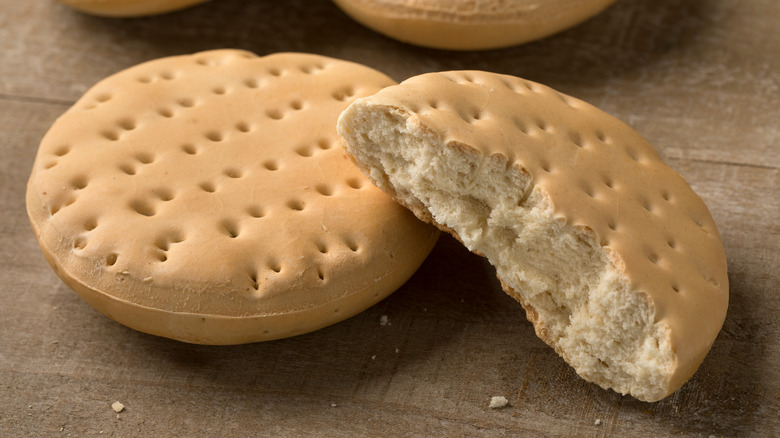Here's What Pirates Actually Ate While At Sea
What life could be more exciting than that of a pirate? Many of us have an image — based partially, no doubt, on books and movies such as "Pirates of the Caribbean" — of an adventure-filled, swashbuckling existence, but the truth was far less glamorous. According to CultureMap, thieving pirates active on the open seas during the so-called Golden Age of Piracy — roughly between 1650 and 1720 (via Royal Museums Greenwich) — lived a short, crowded, miserable existence characterized by ship rats and fleas, diseases, and infections that often ended in amputation.
With less-than-hygienic conditions, a lack of clean clothes, and, of course, the ever-present danger of attacks from rival ships, it seems safe to say that the pirate lifestyle was not an enviable one — especially if you like to eat. Much like the other hardships they regularly dealt with, pirates suffered when it came to eating well or having enough food at all.
A gallon of beer a day, dry crackers, and not much else
According to a 2012 study published by the American Journal of Physical Anthropology, the primary diet of 18th-century British sailors consisted of bread, beef, and a little bit of butter or cheese. National Geographic, which reported on the study's isotopic analysis of the bones of 80 such sailors buried in southern England, writes that their primary caloric intake came in the form of beer — an entire gallon per day — which, along with rum, kept better than water during months-long voyages.
The aforementioned "bread" was something called hardtack, a dried flour-and-water dough that was usually infested with insects after a few weeks at sea. And beef came salted and dried, taking on such a durable texture that sailors were able to carve it into buttons and belt buckles.
Due to a lack of fruits and vegetables in their diet, sailors commonly fell ill with scurvy (per CultureMap), which is a disease caused by a lack of vitamin C that can cause weakness, bleeding gums, and rotting teeth, according to NHS. Scurvy and other diseases that resulted from poor hygiene and a lack of medicine typically caused the premature death of sailors, most of whom likely didn't make it to age 30, according to National Geographic.
So the next time Halloween rolls around and you want to dress up like a pirate, don't pack much more in your satchel than beer, some dry crackers, and perhaps a bottle of prescription antibiotics.

